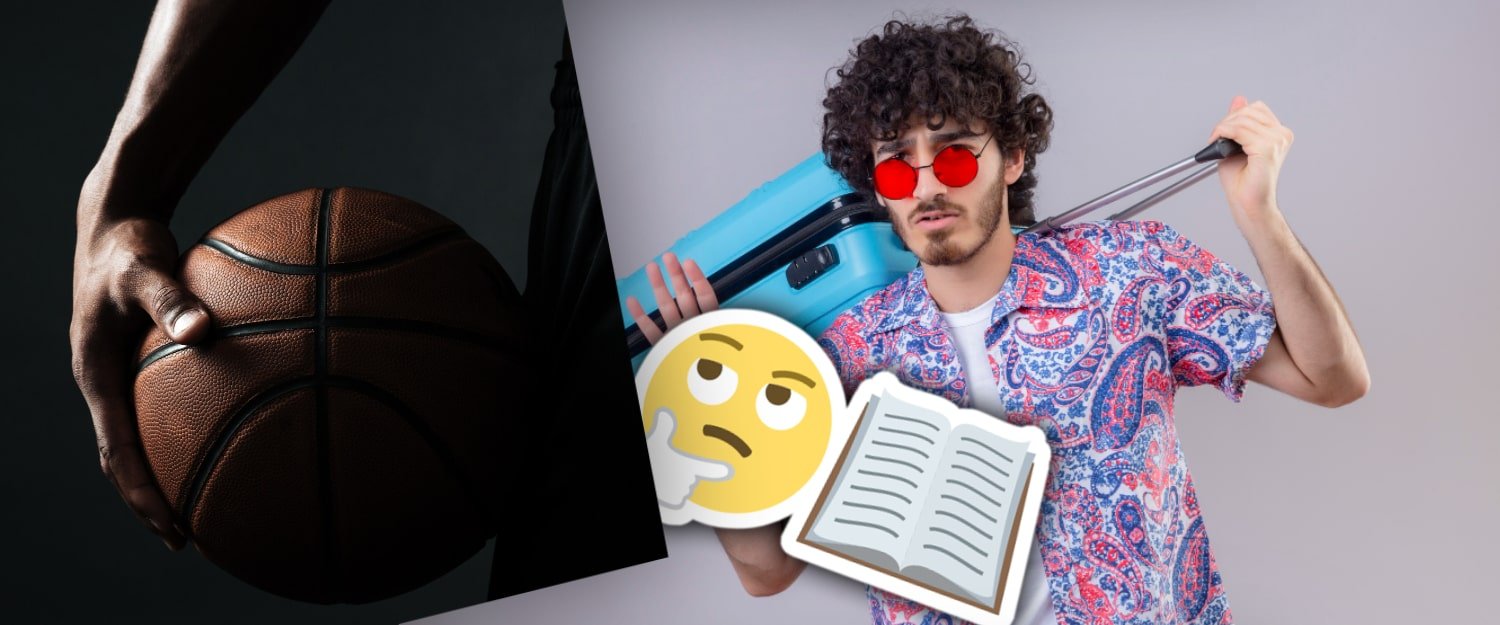The Reasons NBA Players Switch Teams
The NBA is one of the most competitive leagues in sports. The intense competition forces NBA players to constantly be looking for new opportunities with other NBA teams. And there are many reasons why players switch teams. In this blog post, we will talk about some of the more common reasons NBA players switch teams.
Winning a Championship
The first, and most obvious reason NBA players switch teams is because they want a chance to win a championship.
There are many reasons why NBA players strive to win a championship:
- Personal accomplishment: Winning a championship is the ultimate achievement for an NBA player. It is a testament to their talent, hard work, and dedication to the sport.
- Legacy: Winning a championship cements a player’s legacy in NBA history. Players who have won championships are often regarded as some of the greatest of all time.
- Financial gain: Winning a championship can lead to increased endorsements, higher salaries, and more opportunities for players both on and off the court.
- Team success: Winning a championship is the ultimate goal for any NBA team, and players want to be a part of a winning organization.
- Competitive drive: NBA players are highly competitive and winning a championship is the ultimate form of competition. It is a challenge that motivates them to work harder and perform at their best.
Many NBA players feel as though their NBA team does not have the talent needed to compete for an NBA title. And sometimes simply joining another NBA team increases the chances of winning it all.

Duos and Trios
Another common reason NBA players switch teams is that they want to play alongside other NBA stars. NBA players often feel as though playing on a different NBA team means that their chances of getting more recognition from the media will increase. Which in turn increases their overall brand value.
superteams
NBA players often form superteams for several reasons:
- The pursuit of championships: The ultimate goal for many NBA players is to win championships. By joining forces with other top players, they increase their chances of winning a title.
- Increasing their own value: Joining a superteam can increase a player’s visibility and marketability. This can lead to increased endorsement deals, higher salaries, and more opportunities.
- Friendship and camaraderie: Many NBA players have close relationships with one another and enjoy playing together. By forming a superteam, they can continue to play alongside their friends and enjoy the game together.
- Building a winning culture: Superteams often have a winning culture and players can learn from one another and develop better playing habits. This can lead to continued success for both the individual players and the team as a whole.
- Responding to the competition: Other teams may have already formed superteams and players may feel the need to respond in kind to remain competitive.
However, it’s worth noting that forming a superteam can also be controversial, as some people believe it creates an unfair advantage and makes the league less competitive.
This can lead to better endorsement deals, bigger contracts for future seasons, etc. So, some NBA players choose to join another NBA team with star-caliber talent. Simply because it makes them look good while making them money at the same time.
Income Disparities
Another reason why NBA players switch teams is due to differences in income earnings between different NBA franchises. Much low revenue-generating teams cannot afford as much money as high revenue earning ones. Which can result in unfair contract negotiations for new seasons after an original one expires. In these situations, many lower-paid NBA players choose to join NBA teams with high revenue. Because the increased pay will make them much happier.
More Money
Another reason NBA players switch teams is that they want to make more money. Even NBA stars will choose not to play for NBA franchises that are willing to pay them less than other NBA stars. Even if the team does have championship aspirations or star power on their roster.

Team Chemistry
Another common reason why NBA players switch teams is due to issues with teammates and coaches within a certain NBA franchise. Sometimes locker room drama prevents an entire group of talented individuals from truly succeeding together in unison. So one player decides it would be best for his career if he switches basketball teams.
Other times bad chemistry between two specific NBA players can result in trades. Simply because both men do not get along very well with each other during games and practices. Which hurts the NBA team as a whole.
Problem with the Management
We cannot forget NBA players who simply do not get along with the management of an NBA team. One player may feel as though his NBA franchise is too restrictive. While another NBA star might believe that he deserves to make more money than what the NBA organization offers him.
Sometimes a rift in communication leads to a lifelong grudge between both sides after deals are made and turned down. Which results in one or multiple NBA players requesting trades from their current NBA teams. So they can play for other organizations instead.
Expiring Contract
Another reason NBA players switch teams is that their contract with a current NBA team expires. Signing new contracts takes time. And sometimes NBA players want to make sure that they are getting the most money possible from another NBA franchise before signing an agreement during free agency. In these situations, it can be difficult for many NBA franchises. As valuable assets walk away without receiving anything in return.
A New Beginning
Finally, NBA players have been known to switch teams for a new beginning. Some NBA stars simply do not fit in with the culture of their current NBA team and want to play somewhere else where they can be more comfortable within themselves as well as their surroundings. Other times an NBA player might feel as though his career has reached its peak potential which makes him believe that he needs a fresh start if he wants any chance at winning a championship before retiring from professional basketball altogether.
Getting Frustrated
Another reason NBA players switch teams is that they are simply getting frustrated. NBA stars want to win championships, and sometimes it takes a while for all of the right pieces on an NBA roster to fall into place which can frustrate many NBA players as their careers start coming closer towards the end rather than moving forward from where they had been years prior.
In some cases, NBA veterans will choose to join new NBA franchises just so that they have a chance at winning basketball games again before officially leaving the sport forever.
The Grass isn’t Always Greener on the Other Side
Some people may think that all NBA players are constantly looking for new opportunities with different NBA teams due to dissatisfaction over contract negotiations or disagreements between teammates/coaches/executives. However, NBA players often stick with NBA teams through thick and thin even if they are going through a rough patch.
Even though NBA players have the opportunity to switch NBA teams whenever their current team has a bad season or fails to live up to expectations, some NBA stars choose not to leave because of deep-rooted emotional connections that keep them from moving on no matter how dire the circumstances may become.
Why Do NBA Players Get Traded?
We have covered a lot about NBA players switching NBA teams for various reasons. Now we want to answer the question of “why do NBA players get traded?”.

NBA teams deal players for a wide range of factors, and these factors might change significantly depending on the specifics of the trade. The following is a more thorough examination of the causes behind NBA player trades by teams:
To enhance group performance
To boost their overall performance is one of the main motives for trades by clubs. A team may trade for a player who can meet a particular need or raise their overall talent level if they are having trouble winning games or are hoping to advance far in the playoffs. A club with a weakness in the center position, for instance, can trade for a center who can contribute strong defense and rebounding.
Contract problems
NBA contracts may be complicated, and teams occasionally transfer players just to keep their salary cap under control or to avoid having to pay the luxury tax. A team may move a player to clear cap space or to receive a better return on their investment if they are underwhelming or have an expensive contract. In contrast, a team might trade for a player whose contract is about to expire in order to free up more cap room for next campaigns.
Personal Matters
A player could ask for a trade for personal reasons, such as the desire to be nearer to family or to experience a new environment. Similar to this, a team may trade a player who is causing problems in the locker room or who has personality conflicts with the coaches or other players.
Rebuilding a team
In order to strengthen their squad in the future, a struggling team may trade away current players in favor of younger, less expensive players or draft picks. In order to do this, elite players who are beyond their prime may be traded away in return for young players who have the potential to grow into strong teams.
Team or coach chemistry
A player might occasionally be traded to improve team chemistry if they don’t mesh well with the club or the coach’s scheme. To bring in a player who is more willing to play the role that the coach has assigned, for instance, a player who is unhappy with their position on the squad may be traded.
In conclusion, teams trade NBA players for a variety of reasons, all geared toward enhancing their on-court performance. NBA trades are a common occurrence in the league, and they can have a big impact on a club’s short- and long-term success, whether it’s to add new players, free up salary space, or improve team chemistry.
Can NBA Players Choose their Next Team?
In most cases, NBA players will choose between two or three NBA franchises if they are presented with multiple opportunities when trying to make their decision of where they want to play next.
This gives them more freedom compared to being restricted by only having one option at any given time which could force certain stars into making decisions against what is truly in their heart rather than following what would benefit them personally.
They do this instead of staying loyal towards an individual franchise who ultimately made it clear that they no longer wanted to keep that player for the remainder of their NBA career.
NBA players can choose their next team under certain circumstances, which are generally related to the terms of their contract and the NBA’s collective bargaining agreement. Here are some examples of when NBA players can choose their next team:
- Free agency: When a player’s contract with a team expires, they become a free agent and can negotiate with any team in the league. Free agency typically occurs during the offseason and can last for several weeks, during which time players can consider offers from various teams before deciding where to sign.
- Player options: Some contracts include a player option, which allows the player to decide whether to become a free agent or remain with their current team for an additional year. If the player chooses to exercise their option, they can negotiate a new contract with their current team or sign with a different team in free agency.
- Buyouts: If a player is unhappy with their current situation, they may request a buyout from their team. A buyout involves the team and player mutually agreeing to end the player’s contract, allowing them to become a free agent and sign with any team they choose.
- Trades: While players typically do not have control over whether they are traded or not, they can influence where they are traded if they have a no-trade clause in their contract. A no-trade clause gives the player the power to veto a potential trade to a certain team, allowing them to choose where they play next.
It’s worth noting that while NBA players have some control over their next team under certain circumstances, there are also limitations to their agency. For example, a player under contract cannot simply choose to leave their team and sign with another team mid-season without going through the appropriate trade or buyout channels.
Conclusion
In conclusion, there are many reasons why NBA players switch teams during times when their original contracts have expired with a particular basketball franchise. Some people will say that these athletes should stay loyal to whatever squad originally drafted them since they owe everything they’ve achieved in NBA to that NBA organization, but many NBA players see things differently.
There are many reasons NBA players switch teams, but the ones mentioned above are some of the most common examples. There are countless other possibilities that NBA players consider before switching basketball teams, so this blog post only skims the surface on potential NBA player motivations for changing NBA franchises.








